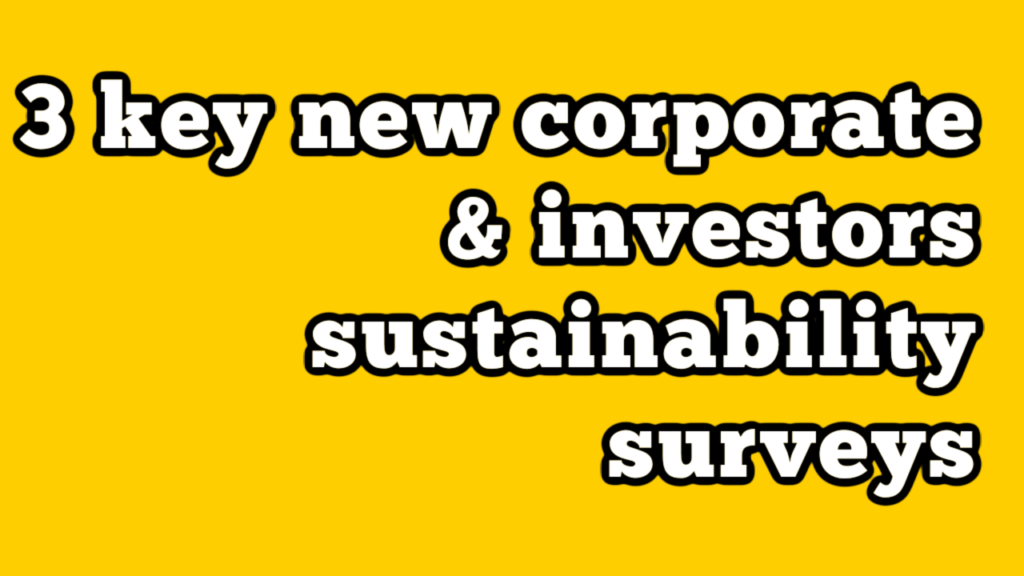3 key new corporate & investor sustainability surveys

Here’s a note from Nawar Alsaadi:
If you are in the sustainability data collection and management business, or in the asset management business, or if you are considering a sustainability-related career, you need to take note of these three key surveys:
1. Deloitte (12/22): According to this survey of 300 publicly traded companies, 99% of companies are somewhat or very likely to invest in more sustainability data tools and technologies going forward. (57% have already formed cross-functional groups with a strategic focus on ESG).
If your startup provides corporate sustainability data and management tools, the findings of this survey should be on the first page of your pitch deck.2. Honeywell (11/22): According to Honeywell’s Environmental Sustainability Index which surveys 650+ businesses quarterly. Over the next 12 months, 91% of companies are increasing their energy evolution and efficiency budget, 88% are increasing their emission reduction budget, 86% are increasing their pollution prevention budget, and 88% are increasing their circularity/recycling budget.
If you are considering a sustainability career, or if you are in business of selling solutions or services in the aforementioned sustainability areas, this is a must read report.3. PwC (10/22): According to this landmark PwC sustainable investing report, 81% of US institutional investors and 83.6% of European institutional investors plan to increase their allocation to ESG products over the next 2 years. In the same report, PwC projects ESG/sustainable assets to reach $33.9 trillion by 2026 thus capturing 21.5% of the global investable assets market by that point compared to 14.4% in 2021.
If you are in the asset management business, whether you are focused on ESG investing or not, you need to take note of this report and position your business accordingly.If there is one thing that all these reports make clear, the march of business sustainability is accelerating and is increasingly entrenched. Ignoring these powerful trends is precarious to your financial well-being!
